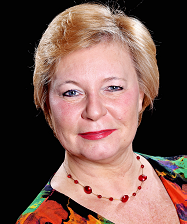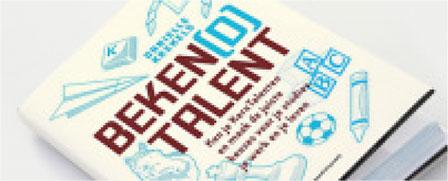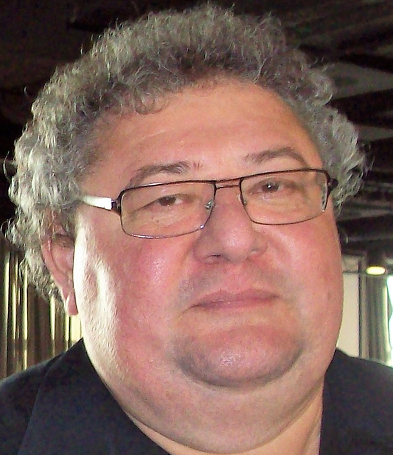Danielle Krekels’ story

Discoverer of the CoreTalents and founder of CoreTalents.
Once upon a time ... 1989, two years after I founded my first company and four years after I took my first steps in the world of engineering and engineering. I loved my work, found it extremely interesting and soaked up like a sponge all the knowledge and experience that each interviewee wished to share with me. I listened to their stories for hours on end. Although it was not efficient for my business (an engineering office for engineering projects and a selection agency for engineers and scientists), it was wonderful and very instructive.
At a certain moment I realised that during their interviews, many engineers said something like: ‘Gosh, Danielle, I was already like that as a child.’
I started to pay attention, and indeed: the Belgian industrial engineers or Dutch HTS engineers told stories of how much fun they had as a child playing with Lego or Meccano. Female engineers spoke of how much fun they had taking their dolls apart. As children, both sexes cheerfully disassembled radios or alarm clocks, often to the despair of their parents who naturally regarded this as ‘destructive’.
Among Belgian civil engineers or Dutch T.U. engineers a different pattern could be seen; there were those who also did the things mentioned above, but many more of them liked to read, often played chess, and loved listening to music. Please note: all this before puberty!
Playing football, tennis, roller skating, hide and seek, theatre, love of animals, drawing and painting, and hundreds of other children’s games or activities were examined. An idea began to develop: ‘Could it be that a child doesn’t become creative by playing with Lego, but rather plays with Lego because he or she is already creative?’
Thus fifteen years of research began, consisting of checking and double checking what this might mean as an adult. Purely empirical, for sure. I (unfortunately) didn’t keep track of which interpretations turned out not to be valid, but did record the ‘characteristics’ that proved to be correct based on this check & double check.
You know, I was fortunate enough to be dealing with engineers and scientists who were infamous ‘devil’s advocates’. If an assumption I had about them was correct, they said: ‘yes’. If that was not the case: ‘no’. So things progressed. I can’t imagine investigating this discovery via interviews with psychologists: ‘yes, but that was because my mother...’ and then there would probably be a long story about why she or he played with this but not with that toy ;-). However, it turned out not to be about ‘why?’ something was played with or ‘how often’, but only ‘what and how exactly’ and ‘how willingly’. Whether or not someone could do something correctly as a child didn’t even enter into the picture! The fact that you liked playing (with) something as a child - in an innocent period - reveals something of your nature (character: who you are), your potential (talents: what you could be) and your intrinsic motivation (desire: what you want).
In other words, children betray who they are by their own free choices for various things like sports, games, toys, games, activities, pastimes and interests - but BEFORE puberty. These things happily done as a child
were made up of only that which was actually done, not what the child would have liked to do, because it is impossible to know whether the child would have found the hypothetical playing as fun as it seemed ... In an average of 8 years (from 4 to 12 years of age (the start of puberty)), normal children have chances and opportunities enough to express themselves while growing up in an ordinary environment.
Recently Prof. Dr. Dick Swaab, a renowned brain researcher in the Netherlands and China, and author of among others We Are Our Brains: A Neurobiography of the Brain, from the Womb to Alzheimer’s and Our Creative Brains: How World and Mankind Shape Each Other, asked what I thought of the scientific literature that says that people continue to change until the age of 30. (By the way, he’s a wonderful man, but I always feel like I’m taking an exam when I talk to him!) I replied that I think this is because researchers compare the personality of their subjects as adults with those of their puberty and adolescent period, and those of their period as adolescent with the period as a child. We, in the CoreTalents Method, compare the adult personality with that of childhood. So before all these changes in the brain take place under the influence of the maturing brain and the rising hormone flows. I believe that the only period in a human life when someone is NOT himself is precisely puberty and adolescence - under the influence of a strongly changing and maturing brain - where the young person feels the need to experiment under the influence of raging hormones and is more susceptible to influences of their developmental peers. It was quiet for a while. ‘Interesting’ was his answer. When I asked whether the current state of brain research revealed things that contradict this, his answer was short and powerful: ‘no’.
In the end, the discovery of CoreTalents turned out to caused quite a stir ... I was lucky enough to be able to tell my story on Radio 1, in newspapers like De Morgen, De Standaard, Het Laatste Nieuws and many other newspapers and magazines in Belgium and the Netherlands. I appeared on Paul De Leeuw’s TV show and people actually liked the fact that for the first time, Paul didn’t know what to say. For my 2nd book, I was able to analyse Prof. Dr. Jean-Jacques Cassiman, Goedele Liekens, the late Prof. Dr. Roger Blanpain, the youngest minister ever in Belgium Inge Vervotte, author and ‘enfant terrible’ Herman Brusselmans, singer Jo Lemaire, and 8 other celebrities.
For my 3rd book, contributors included distinguished names such as Prof. Dr. Elke Van Hoof of the VUB and Het Huis voor Veerkracht, Prof. Dr. Dirk Buyens of the Vlerick School, Rianne van de Ven (specialist in highly gifted adults in the Netherlands), Jan Van Acoleyen (HR Director at Proximus), Dr. Frouke Vermeule (boreout specialist), and so on. 17 top representatives of their respective professions were happy to share some of their ideas via their pen.
I am very proud of my Mensa Fund Award for my work in November 2015.
I am very happy to give lectures for Voka, Etion and many other professional organisations.
I am a very happy person, because I can make people truly happy - and that is my dream: that all can know their CoreTalents in order to make positive sustainable choices!

In my first book of 2004, I published the major lines of my findings as well as the philosophy and possible explanations behind them - at least to the extent that I understood them at that time. That book also included a short self-test of a number of those “things happily done as a child”, albeit without all the components of their significance; In each case, I gave only a few as an example. I wanted to give a bit of a boost to the people I could not interview personally. Unfortunately, that self-test and its solutions are still illegally copied to this day. There are even many organisations where coaches, HR staff and psychologists use it as a so-called ‘test’ at meetings about (talent) management, team building and so on. Illegally and wrongly, of course, because they cannot see the connections and combinations. The ‘ad test exercise’ appeared in that first book, and subsequently found its way to many career counsellors and coaches. It is used today by thousands of professionals.
When I saw quite a bit of this kind of short-term - in my eyes very ‘amateurish’ - use of ‘my CoreTalents discovery’, I decided to approach it more professionally. Our first Accredited Analysts were trained in 2006. These were employees of Alprocor, my then selection agency for engineers and scientists. They were soon followed by HR managers, RSS experts, psychologists, certified coaches ...
(In 2014 we recognised our 100th Accredited Analyst. In the summer of 2017, our 200th analyst completed studies in the Netherlands. And in early 2019, we will celebrate our 300th CoreTalents Analyst!)
In 2012 I published my second book ‘Beken(d) Talent’ [Realise your Talent], containing the meaning and significance of knowing your strong, half and small CoreTalents.
Fourteen celebrities from Flanders and one from the Netherlands participated in a CoreTalents Analysis and allowed a report to be published. The proceeds from that book are being invested in social profit projects to this day. For example, we have already completed a major pilot project in three local schools. We also financed the training of specific educational staff.
My 3rd book was published in 2018: Krachtig met KernTalenten - Werk met je sterke punten en maak studie- en carrièrekeuzes die levenslang bij je passen [Strong with CoreTalents - Work with your strengths and make study and career choices that suit you for life], in which 10 themes illustrate the application of the CoreTalents in as many domains: education and study choice, recruitment and selection, career guidance, coaching, HSP and high giftedness, stress and burnout/boreout, leadership and so on.
You know, some people think that precisely negative choices make you who you are. If I had known my own CoreTalents at 18, I would probably not have studied history, I would not have stopped prematurely, I would not have ended up in an engineering company, and so on. And ‘thus’ would not have discovered the CoreTalents. Is it ‘thus’ a good thing that I made the wrong choices?
Life is more than making choices, of course. Indeed, chances are I would never have discovered the CoreTalents if I had not followed that path. But perhaps I would have anyway. Because interviewing people is in my blood. And interest in everything as well. And wanting to understand why people do what they do. And wanting to see them happy and helping them with that too.
‘You can’t hide your true nature’.
‘If it walks like a duck, talks like a duck...’
‘The truth will always come out.’
Numerous proverbs indicate that the positive aspects of your nature, your predisposition and your desire ultimately will prevail. And indeed: these three elements ultimately complete you and make your life meaningful: worth being lived. It’s just that I think you shouldn’t have to struggle with them for your first 40-50 years. A CoreTalents Analysis lets you know immediately, in about 2 hours, and analysis is possible from approximately 14 years of age.
I wish you good luck and success!
Interview with Dirk Sterkendries B.Sc.

Our tower of strength.
- What exactly do you want to do with CoreTalents, Dirk?
‘I want to provide good service so that our clients are satisfied and to steadily build on the future.’
- What do you hope to achieve in the future?
‘Without compromising on quality, I want to create a growing community in which our Analysts learn from each other and thus contribute to a thriving knowledge centre around the CoreTalents. I want to give all our Analysts and their and our Clients a WOW feeling.
- What precise role do the Analysts play for you?
‘I see our Analysts as ambassadors of the CoreTalents Method. They must be able to build on a solid foundation. I want to offer them that solid backbone through a healthy and well-structured company. And apart from that: I want to gradually expand and disseminate the CoreTalents Method and therefore also CoreTalents. In addition to my passion for opera, of course! (laughs)’
- How specifically do you do that?
‘We also organise Master Classes after basic training as Accredited Analyst around a specific topic such as CoreTalents and leadership, CoreTalents and competences, and so on. As well as the Refine the Professional afternoons, an annual refresher day and many other activities that make our Analysts happy and give them the opportunity to learn more. Our forums such as the closed ‘CoreTalents Mirror Group’ on Facebook also help them to help each other, and of course I’m always there for them.’
- You previously held management positions in multinational companies. Are you able to use all your strong CoreTalents in your present position?
‘I indeed worked at three multinational companies, but the attitude that high profits for anonymous shareholders must be pursued and the associated ever-increasing cost savings made me ill. Instead of building up as I am able to do here at CoreTalents, I had to fire people who did nothing wrong but who were simply the victims of the unrestrained need for money and power on the part of the shareholders. For example, they simply decided, randomly, that their profit percentage had to be in the double digits (so at least 10%) ‘because it was possible!’
At CoreTalents I can give shape to a company that combines fantastic human-loving content with great dreams and realistic opportunities. That what we do effectively benefits people is essential to Danielle and I. And that I also earn a living with it and can regularly go to the opera, is of course a nice bonus. What more could a person want?’
- You have a number of strong qualities that Danielle does not have. Is that sometimes a problem for her?
‘Hmmm, I don’t have that feeling, quite the contrary in fact. Danielle is not only my wife - whom I truly love - but a woman full of creativity, curiosity, empathy and intelligence. Which doesn’t mean that I don’t have all that, of course! (laughs) All joking apart, we are very complementary. In CoreTalents language: she has certain strong CoreTalents that are rather small or half with me, and vice versa. Even though we sometimes clash, we understand right away that it’s rarely about structural or serious things. Usually it concerns style differences that are a result of our CoreTalents constellations. This insight gives us both balance and peace, because the sting is quickly taken out of negative discussions. Which is why we’ve been able to work together successfully for more than 12 years, first at Alprocor and now at CoreTalents.’
